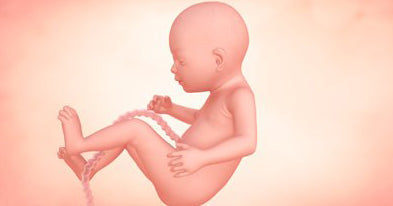
Help your baby develop in the twenty-fourth week of your pregnancy
You might be susceptible to anemia during pregnancy. Support your pregnancy health by consuming foods rich in iron, B vitamins and vitamin C.
What’s happening this week?
All these weeks, your baby’s lungs have been preparing to help your baby receive oxygen after being borni. The cells in his or her lungs are now producing surfactantii, which is a substance that keeps the sacs from sticking together.
As the lungs continue to mature, for now, he or she still receives oxygen through your placenta. Meanwhile, the cerebral cortex layersiii in your baby’s brain are also continuing to develop.
This development is vital for the eventual high-level cognitive functions of reasoning, communication, and memory, among others. Your baby is so good-looking now with hair on his or her head and beautiful eyelashes!
He or she now measures almost 8.5 inches (21 centimeters), and weighs about 1.25 pounds (540 grams)iv.
What can you expect?
Your doctor is likely to check for anemia or iron deficiency. You are at an increased risk of iron deficiency anemia during pregnancy as your iron requirement increases dramatically to make more blood to supply oxygen to your body’s tissue and your babyv. Being iron-deficient during pregnancy can lead to preterm birth or low birth weight.
What can you do to support your pregnancy?
You could take these steps to prevent anemia and support your pregnancy health:
- Eat foods rich in iron, such as green leafy vegetables like spinach, and fish like sardines and salmon, poultry and red meat.
- Continue to take your iron and folic acid supplement as advised by your doctor. Iron is important to prevent maternal anemia and other pregnancy complicationsvi. Folic acid also helps in the formation of red blood cells.
- Eat foods rich in vitamin C. Vitamin C helps your body absorb iron better.
- Eat foods rich in B vitamins including Folate (found in green leafy vegetables, legumes, and whole grain) and B12 (found in milk), which also supports red blood cell productionvii.
In general, eating food high in fibre like fruits, vegetables and wholegrains, as well as exercising regularlyviii are healthy habits during pregnancy, as they lower your risk of developing gestational diabetes. But do remember to consult your doctor before doing any exercises.
At this enjoyable stage of your pregnancy, it might be a good idea to start putting together a list of things you’ll need once the baby arrives and scouting out some of the major items. Shopping – even window shopping – for the little one’s (and your) things, will get you even more excited about meeting him or her and is a great experience to share with your partner, friends, and family.



